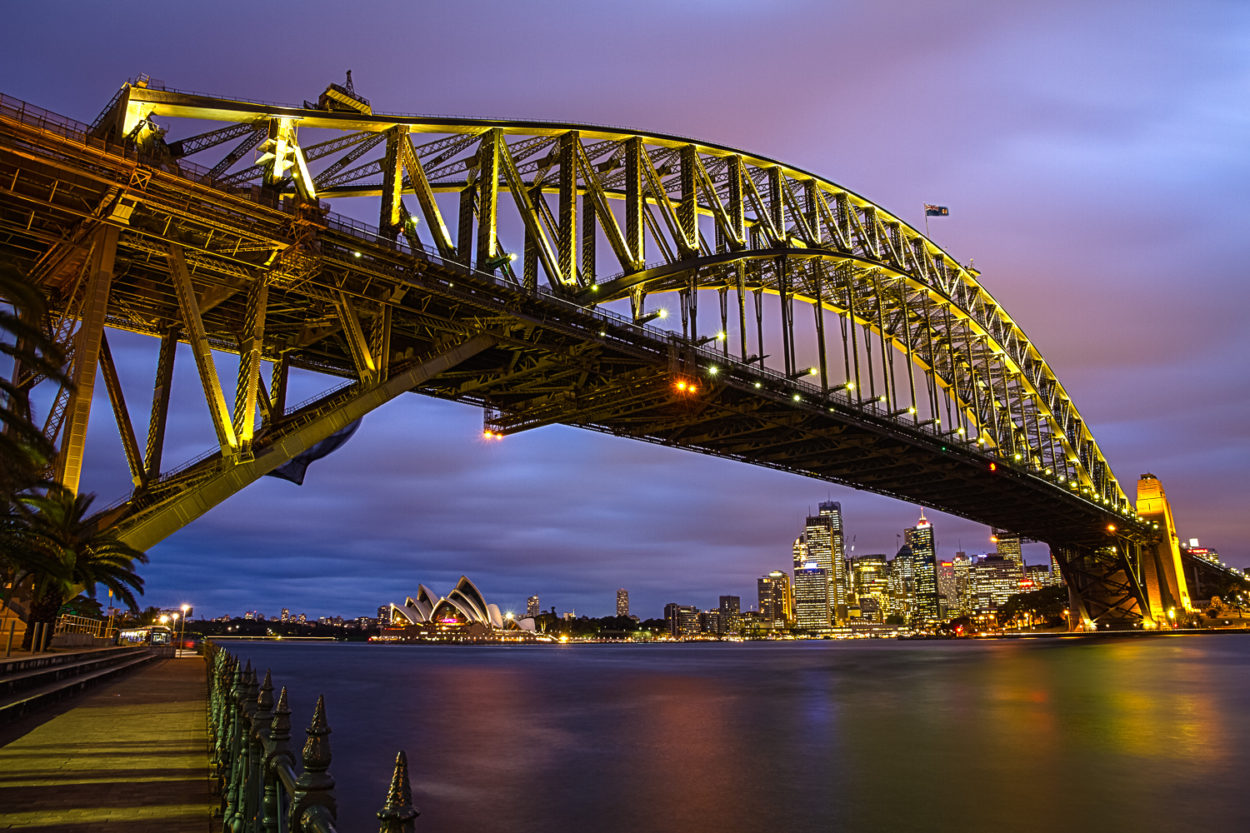Britain is at a political fork in the road. Brexit provides an extraordinary opportunity to chart a new course in trade, regulation and immigration policy.
 One place Britain can learn from is an old friend and partner, a country that has achieved over 25 years of economic growth, and has higher incomes and where people have longer lives.
One place Britain can learn from is an old friend and partner, a country that has achieved over 25 years of economic growth, and has higher incomes and where people have longer lives.
A beacon of Western civilisation on the edge of Asia, Australia is an extraordinary success story. It has been 103 quarters since Australia's last recession — withstanding the Asian banking crisis, the global financial crisis in 2008, and more recently the commodities-price downturn.
Britain may not be able to import Australia's weather, but there's still a lot to be learnt about what it takes to be successful.
Free markets, free trade and an open economy are essential to prosperity
At the beginning of the 1980s the Australia economy was a mess. In an extraordinary era of bipartisan reform, the dollar was floated, we pursued unilateral free trade through subsidy and tariff reductions, industry was privatised, and our tax and spending system was radically reformed. There have been plenty of bumps along the way — and more work to be done — but the philosophy of being an open, free economy has worked.
The mood in the UK, from Theresa May's so-called "new centre" to Jeremy Corbyn's explicit socialism, is that of state interventionism. This will not work. It never has — just as the Venezuelans who face extreme food and energy rationing due to failed socialist policies. Leaving the European Union provides a perfect opportunity to liberalise markets by cutting costly European Union red tape, and engage with the growing world through free trade. That's the proven path to prosperity.
The future is in Asia, not Europe
The European Union as a percentage of the global economy has shrunk from about 35 per cent in 1980 to almost 20 per cent today. This is because of the staggering rise of Asia, where thanks to liberalised markets and trade hundreds of millions of people have been lifted out of poverty. Australia's open economy has massively benefited from this rise. And in just the past few years Australia has signed free trade agreements with China (2015), Japan (2014), Korea (2014), Malaysia (2012), and ASEAN (South East Asian countries) (2008).
The national debate in Britain is obsessed with Europe — but the future growth markets are in Asia. Europe's population is about 750 million, Asia's is 4.4 billion. China's middle class alone will be as big as 550 million people by 2020. This means hundreds of millions of wealthy citizens looking to buy Western services from finance and banking to tourism and software. And that's not to mention growth potential in India (pop. 1.3 billion), and already wealthy middle income economies such as South Korea and Japan. The world is Britain's oyster.
A controlled, generous immigration system
Since the turn of the century Australia has faced thousands of boat arrivals, who typically cross by land and sea from the Middle East and South Asia to Indonesia, where they pay people smugglers to take them on a perilous journey to Australian territory — with many thousands dying along the way. It's an often sad tale, raising complex moral questions akin to Europe's Mediterranean arrivals. Politically it is notable that the mood turned against immigration when, following Labor coming to power in 2007, a series of successful border protection policies were dismantled.
The core lesson is that you can have a generous, welcoming, popularly supported immigration system only when you also have a controlled immigration system. This sentiment was succinctly put by former Prime Minister John Howard who said "we will decide who comes to this country and under what circumstances". To maintain support for a comfortable level of economically and socially beneficial immigration the British people must be able to decide who comes.
CANZUK free trade and free movement
Australia, New Zealand, Canada and the United Kingdom share a head of state, common values and a history of close bonds. As much as Europhiles talk about the openness and free movement, the European Union has always been a discriminatory inward looking bloc. It blocks trade from outside, hurting the developing world, and it blocks many high skilled, capable young people from spending more than a limited time contributing to Britain. Everyone loses out.
As economies at a similar level of development and similarly skilled population, free trade and free movement face limited issues. Movement and trade would be reciprocal rather than directional. And despite claims that Brexit was a sign of a more inward looking world, in fact there's strong support for free movement. A recent poll from the Royal Commonwealth Society found that 58% of Britons, 70% of Australians, 75% of Canadians and 82% of New Zealanders support free mobility.
Promoting Western values
The British people far too often fail to recognise their positive contribution to the world. A small island that is home to some of the greatest liberal thinkers in the Enlightenment, from John Locke to Adam Smith; a bastion of democracy in perhaps history's most dangerous time; an inspiration for the most successful model of democracy: the parliamentary system.
While Australia has stood for these values in our region — for example, through the UN-backed intervention in East Timor in 1999 — Britain has a continuing role to play promoting democracy, economic freedom and individual liberty. The challenges to the West, be global Islamism terrorism or Russian aggression, require a philosophical as well as military response. A truly global Britain means a Britain that is promoting Western civilisation.
No comments:
Post a Comment